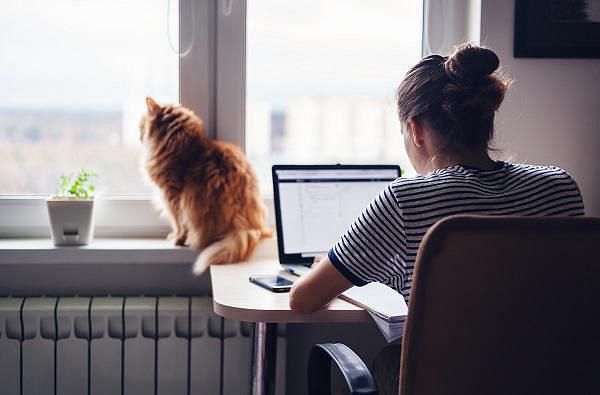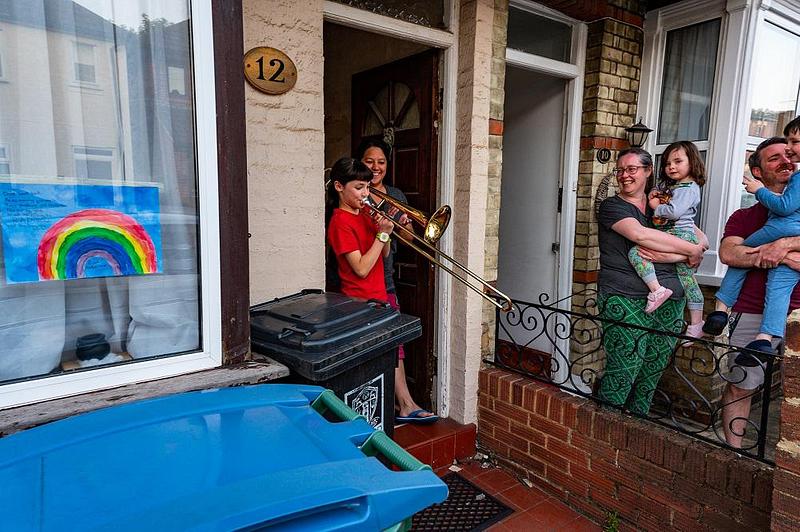May 12, 2020
From Joe Wicks workouts to DIY haircuts, lockdown has been an experience few of us will forget in a hurry.
Daily life has changed beyond recognition in the past 50 days - for better and for worse.
Here, we reveal what our phone movements, search histories and other data trails tell us about its effects on us all.
Of course, being confined to home more of the time is the new normal.
Lockdown has seen many of us try our hands at new ‘jobs’ - teacher, hairdresser or baker - with varied success.
And we’re often turning to the internet for help, as our search histories show.
Weekends seem a particularly popular time for trying questionable home haircuts, according to data on common Google searches.
The working week
Working life has changed dramatically for those who have swapped the daily commute for Zoom meetings - especially for parents having to juggle jobs with lesson plans.
But we shouldn’t assume that everyone has been working from home.
Throughout the lockdown, official guidance has said that people can still clock in at factories, offices, warehouses and other workplaces if they cannot do their jobs remotely.
And a sizeable minority have been doing so, data gathered by Google from people’s phones suggests.
Visits to workplaces on an average day in lockdown have been running at about one-third (36 per cent) of normal levels.
In particular, many weekend workers are still having to turn up in person, analysis shows.
For example, on Saturday May 2, visits to workplaces were at about half (51 per cent) of normal levels.
Explore the situation in your local area with this interactive map:
Now, with real differences emerging in the advice to workers across the four countries of the UK, it will be interesting to see how movement patterns change in the weeks to come.
In England, Prime Minister Boris Johnson is trying to get more people back to work, while avoiding public transport where possible.
In an address to the nation on Sunday, he said that "anyone who can’t work from home, for instance those in construction or manufacturing, should be actively encouraged to go to work".
Meanwhile, devolved governments in Scotland, Wales and Northern Ireland have decided to stick to the "stay home" message, for now.
Health and money worries
The pandemic has been an anxious time for lots of us.
Tens of thousands of families have suffered the tragic loss of loved ones, with many more affected by illness.
Understandably, many of us are nervous about our health.
But what precautions are we taking?
Polling by YouGov shows most of us are steering clear of crowded places and avoiding touching objects in public, such as lift buttons.
But with talk of the UK now being ‘beyond the peak’ of the pandemic, this caution appears to be waning slightly.
For example, on April 3, more than three-quarters of people (77 per cent) told pollsters that they were upping their hygiene routines, such as washing hands more often.
By May 1, this had fallen to two-thirds (68 per cent).
Face masks are the exception - while still only worn by a minority, they are getting more popular.
Car use has begun to gradually pick back up too, according to sat-nav data, suggesting we’re starting to tire of the limits on our movements.
We're likely to see this rise further, especially in England, where from Wednesday people will be able to drive to other destinations for a walk.
However, it doesn't seem like anyone's in a hurry to get back onto buses or trains.
Job security is another worry for many of us, with the Bank of England last week warning that the pandemic is pushing us into the deepest recession on record.
Some 6.3m people - about a quarter of UK employees - have been furloughed as of May 3, while nearly 2m people have applied for universal credit benefits since mid-March, according to the Government.
But along with the challenges lockdown has brought, there have been positives.
Unexpected benefits
The #clapforourcarers has become a weekly tradition, bringing neighbours together to celebrate NHS staff and other frontline workers.
People young and old have been raising money for good causes. Captain Tom Moore’s extraordinary sponsored walk in the run-up to his 100th birthday captured the nation’s hearts, raising a world record-breaking £32m.
And the empty streets have seen pollution levels fall across the country, as readings from hundreds of official monitoring stations show.
Wildlife has been returning to the most unlikely of places - sparking countless tongue-in-cheek ‘nature is healing, we are the virus’ memes.
So in the coming weeks and months, as restrictions on our lives start to ease, we might start thinking about what aspects of the lockdown we’d like to continue - whether it’s working from home on a regular basis or video calling relatives more often.
But let’s ditch the home haircuts, eh?

